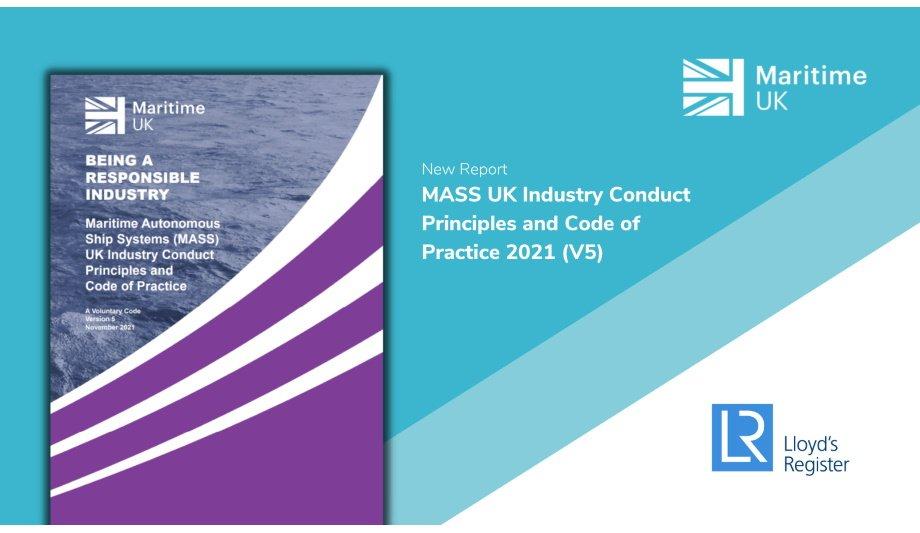Maritime UK has announced launching the Version 5 of the Industry Code of Practice for Maritime Autonomous Ship Systems on December 6, 2021. The accelerating pace of change in maritime autonomy has required updated guidance for those owning and operating Maritime Autonomous Ship Systems (MASS).
While not a legal text, the Industry Code of Practice has been used by manufacturers, service providers, and others, as part of their day-to-day work. Many manufacturers have reported clients requiring compliance with the code, as a basis for contractual negotiations.
Version 5 of Industry Code of Practice
The MASRWG published the first Code of Practice, to global industry-wide acclaim in November 2017
Whereas previous versions focused on the design, manufacture and operation of vessels, with significant focus on skills, training, cyber security, pilotage, dynamic positioning, and Vessel Data Recording, the Version 5 adds guidance on certification and registration, the training and certification scheme for Dynamic Positioning (DP) Station Keeping Systems for Remote Operations (Remote DP Operator Certificate), Vessel Data Recording, safety culture, navigation products and data, as well as the reporting of marine casualties, incidents and near misses, and managing Remote Control Centre (RCC) workforce well-being.
The Maritime UK Autonomous Systems Regulatory Working Group (MASRWG) published the first Code of Practice, to global industry-wide acclaim in November 2017, followed by the second version in November 2018, third in November 2019 and fourth in November 2020.
Lloyd’s Register supports publication of the new version
Lloyd’s Register (LR) has supported the publication of this version of the Industry Code of Practice for Maritime Autonomous Ship Systems.
Sarah Kenny, the Chair of Maritime UK, said “Autonomy is a space in which the UK maritime industries truly excel. It fuses our expertise across the sector - professional services, cutting-edge innovation and high-quality manufacturing and design. I’m delighted that the MASRWG continues to generate the best guidance available on the development and operations of MASS.”
Robust guidance on Maritime Autonomous Ship Systems
Autonomous shipping has the potential to drive forward the global maritime sector"
Sarah Kenny adds, “Autonomy is changing the way we live and work, and it’s therefore vital that ahead of regulation, the working group continues to provide robust guidance on MASS, to those that need it.”
Robert Courts MP, Maritime Minister at the Department for Transport, said “Autonomous shipping has the potential to drive forward the global maritime sector and through our Maritime 2050 strategy, the UK is determined to leverage our position, as the most innovative, competitive and sustainable maritime centre, by the middle of this century.”
Robert Courts MP adds, “I am delighted that the UK is leading the way in design and manufacturing of these revolutionary designs, with safety at its core, and look forward to seeing the next chapter for shipping.”
Maritime Autonomous Ship Systems (MASS)
James Fanshawe, the MASRWG Chair at Maritime UK, said “MASS development and operations continues to gather pace. The Code of Practice provides the ideal focus to enable industry to develop ahead of the eventual regulatory framework. Version 5 of the Code of Practice provides the platform for a variety of important updates, with some new and revised guidance.”
Andy McKeran, Lloyd’s Register’s Business Director of Maritime Performance Services, said “The uptake of autonomous systems presents a significant opportunity for maritime. As systems are adopted, it is fundamental that safety is ensured at each stage. Lloyd’s Register is proud to have supported Maritime UK with the latest version of its Industry Code of Practice for Maritime Autonomous Ship Systems which provides guidance on certification, safety culture and a variety of other areas.”
Andy McKeran adds, “We hope the Code will continue to be used by manufacturers, service providers and others across the supply chain as the industry embraces such technology.”
